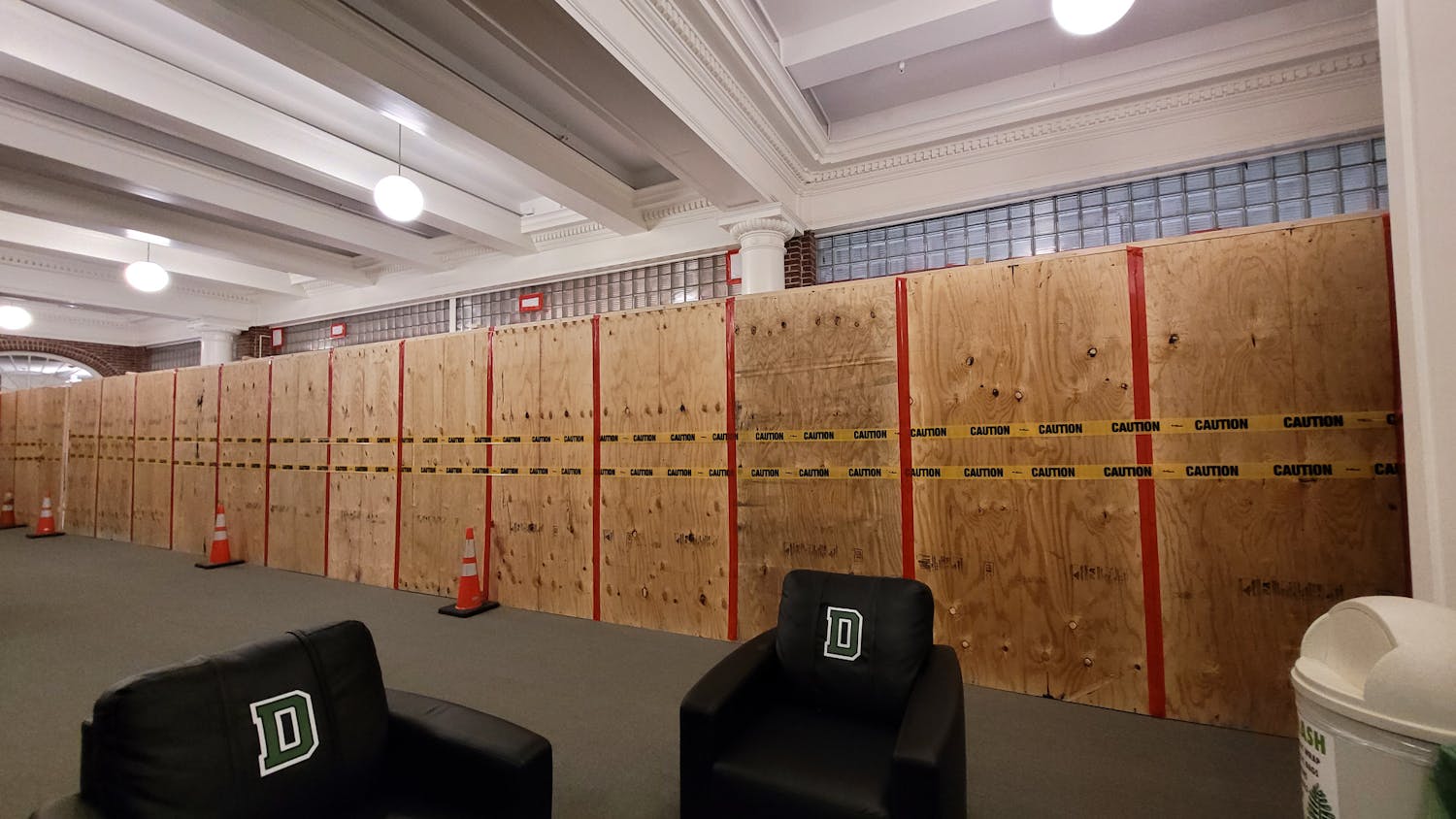The faculty of arts and sciences voted on May 7 to approve language drafted by the Committee on Instruction for new distributive requirements, which were first proposed in 2016 and which are set to go into effect as early as two years from now.
The 2016 proposal consolidated the current distributives into four broad categories: Humanistic and Aesthetic Inquiry, Natural Scientific Inquiry, Social Scientific Inquiry and a more abstract Interdisciplinary Inquiry category. The new requirements will also feature a new one-course Quantitative and Formal Reasoning requirement, similar to the current Quantitative and Deductive Science requirement, but at the same level of importance as the current writing and foreign language requirements. Finally, they will replace the current World Cultures requirement with a single course focused on Theories of Human Difference. The new language voted on at the faculty meeting gives more specific definitions for these categories.
Each broader category also has mandatory subcategories which will further structure students’ academic experience, said Samuel Levey, a government professor and a member of the Curricular Review Committee, which originally recommended implementing the new requirements.
Students will be required to take three courses in the Humanistic distributive, which is focused on the creative and humanistic arts, with at least one in each of two subcategories: one based on “critical inquiry or analysis” and one based on “performance or creation,” according to a letter from the COI distributed to the arts and sciences faculty. The Natural and Applied Scientific distributive includes a three-course requirement, one of which must include a “laboratory or fieldwork component.” The Social Scientific Inquiry category includes a three-course requirement and is concerned with the investigation of social and societal behavior from multiple perspectives.
The Interdisciplinary Inquiry distributive is perhaps the most abstract of the four and is intended to “highlight methods from more than one discipline and make them a part of student work.” French professor and chair of the COI Kathleen Wine said that the requirement could resemble current courses that are cross-listed between multiple departments, but that the distinction could be more nuanced. For example, Levey said that a cognitive science course might fall under this category as it combines philosophy, psychology and computer science. Wine said the Interdisciplinary category should show students how disciplines can diverge, converge and inspire each other.
The new system will continue the foreign language and writing requirements, but will also implement a one-course Quantitative and Formal Reasoning requirement, which will resemble the current Quantitative and Deductive Science distributive and must be fulfilled in order to graduate. Classics and linguistics professor Lindsay Whaley, who is the chair of the Committee on Organization and Policy, said that faculty members felt that a quantitative reasoning course was indispensable to a well-rounded liberal arts education.
The current three-course world culture requirement will also be consolidated into the one-course Theories on Human Difference requirement. Fewer, more comprehensive classes will be required to fulfill the requirement, according to Wine.
The changes were originally proposed as part of a larger curriculum review that takes place at the College every ten to fifteen years, according to Braz. The College then created the Curricular Review Committee, which is composed of Arts and Sciences faculty members, to review the current system and propose and vote on changes. In 2016, the CRC sent its proposals to the Committee on Instruction, which crafted specific language to describe the new requirements.
Finally, the COI sent its descriptions to Whaley, who sent the proposed language to the Faculty of Arts and Sciences to approve.
Levey said the new distributive requirements will give more freedom to students to design their own academic paths without the structure of the current system. He added that “the hope was that … students are going to learn what it is to be liberally educated, not just by exposure but by principle.”
Wine said that the faculty hope the new system will change the way students see distributives, adding that she hopes students will no longer see distributives as boxes to check off and will have a more active role in deciding their academic path.
“The way [students] will think about fulfilling [their] distributive requirements will be a little bit different,” Wine said. “The new system will give students more choices as to how they combine the courses they take within each division.”
Implementing these changes could take some time. Braz said that each current course would need to be reclassified into the new system, a potentially laborious process for faculty and the Registrar. Each faculty member will reclassify their courses according to the new system then send those classifications to the Committee on Instruction. The Registrar’s office will also work closely with the Information Technology department to redesign the Organization, Regulations, and Courses and the DartHub as necessary.
Levey said that the new distributive system will likely be accompanied by more robust academic advising, anticipating more advising training in the future as well. As the new distributives are more abstract, they would likely require a more intentional and intensive course selection process, he added.
Some courses may even carry multiple distributive designations, said Wine. However, many courses will not be too difficult to reclassify. Chemistry classes, for example, will easily fall under the new Natural Scientific Inquiry distributive. For courses that are more difficult to classify, a lengthier process involving the Committee on Instruction will likely have to take place, she added.
Dartmouth has changed its distributives before. Wine said that the distributives have changed at least once before just in her time teaching at Dartmouth, and faculty are not unaccustomed to the changes. Braz said that during the transition period classes will carry both the old and new distributions, a somewhat confusing but necessary step as students who matriculated under the old system will stay under the old system until they graduate.
Ultimately, faculty do not see the new distributives changing life at Dartmouth too drastically.
“I don’t see it being a big difference,” said Whaley. “The whole point of a general education requirement is ensuring that students [who] come to Dartmouth have a maximally effective liberal arts education, and nothing has changed with that.”



